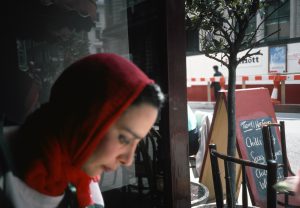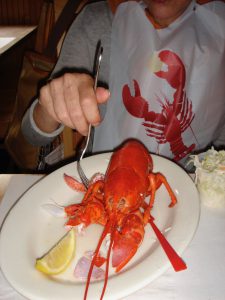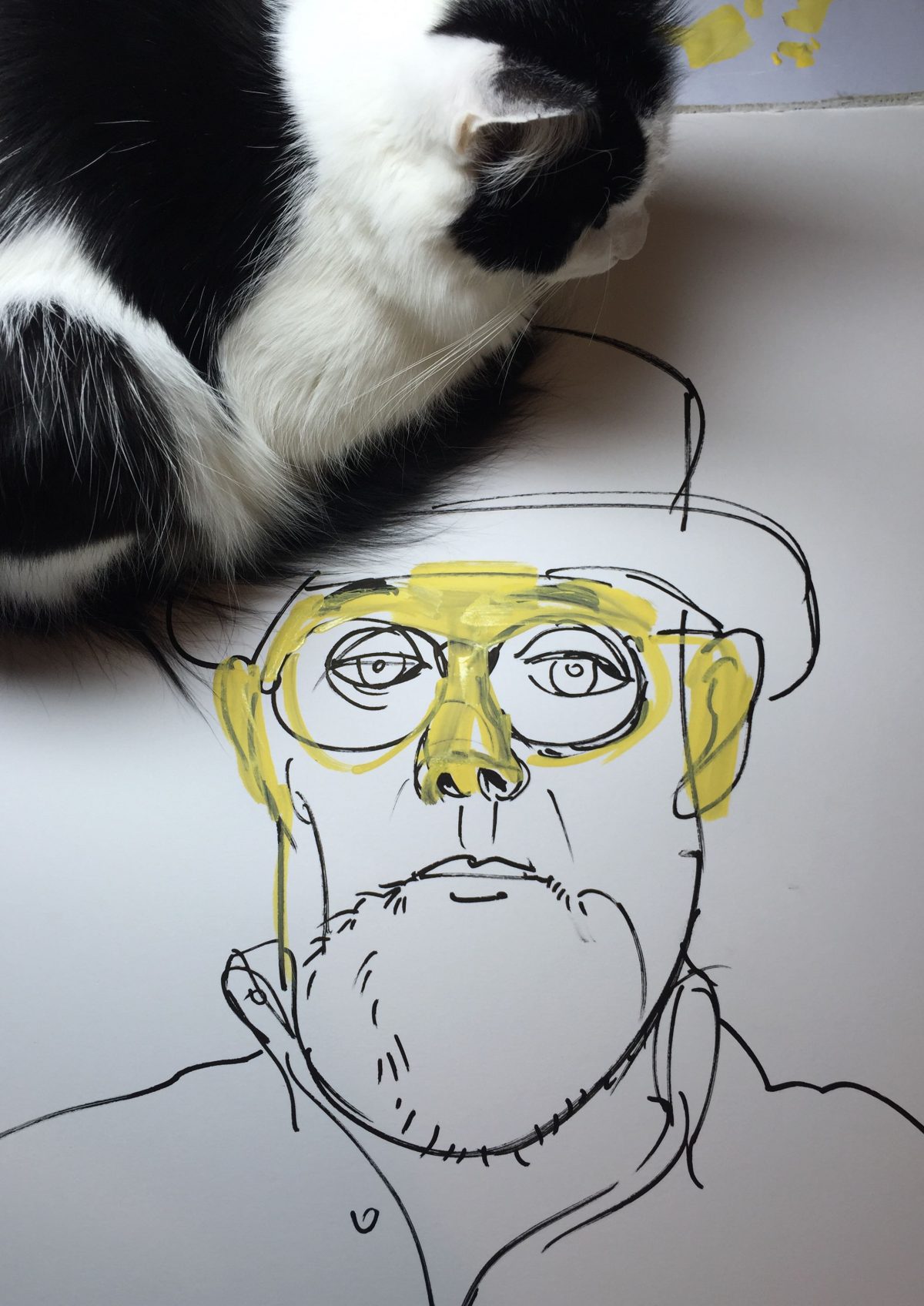It has been months since I put up a blog post. Most of my time has been creating podcasts. It’s time to return. And to trying to do a post or two a week. Let’s hope that’s not an over promise.
Reading Sally Mann’s book Hold Still there is a section where she talks about how pictures diminish our memory because we have the picture as the memory and not of the person or place in its context. As Mann said, so much better then I “… significant moments in the flow of our lives would be like rocks placed in a stream: impediments that demonstrated but didn’t diminish the volume of the flow and around which accrued the debris of memory, rich in sight, smell, taste, and sound.” Mann goes on to discuss her memories of her father and his life.
Thinking about the various podcasts and posts I’ve done on grief, loss, and mourning I now see them differently. As much as these were/are my way of unraveling the the complexities of loss and breaking the emotional hard shell of some truth within the pain, they are in a sense a contextual flow of accrued memories over time. Perhaps that is why I’ve come to consider my grief a changing avatar. It is the moving and changing my memories over time. The podcasts and posts are those accrued debris from my loss. They are the rough-hewned particles I feel beneath my soles as walk that give a context to memories that escort me today. I will add they do not raise to the level and eloquent narrative I see in Mann’s writings.
Below in the order of the older ones at the top are what I’ve spoken and written about on the topic of loss, grief, and mourning.
Grief and Depression: How Hospice Saved My Life June 2012
This was a year following Donna’s death. It was in response to an article in the NEJM on grief and depression and the upcoming DSM-V. It is my early examination of grief. My premiss here is to take the benefits Donna and I received from palliative care and hospice and share it with the world.
I find that here I am hardly touching the issue of my grief or examining it any meaningful fashion. I do speak about the hard work of examining it and that foreshadows what follows.
Cathexis, Decathexis, and Other Fun Moments in Active Grieving June 2012
In that same month I am opening up about how I am going to deal with grief and loss. Reading today what is here I see there is hope that I can do something with the rawness of the emotions. Hope seems to be at the center of my world at that moment. The hope I will find clarity in the waters swirling about the debris I have embraced. This is a strong image and one I hold dear to this day.
What’s In A Caregiver Toolbox? Let’s Build One August 2013
This post was meant to put my marketing expertise in healthcare together with my experiences in being a caregiver and the loss of Donna. I wanted to demonstrate that the caregiver is an important member of the patient care team. I end with this:
In the end caregiving is what we do it is an extension of our love and who we are. But as huge segments of our population ages and more and more of us get ill caregiving will be a critical part of each one of our lives. We cannot escape it. We can only manage it and make it a task that is less horrific and painful. It will never have joy but perhaps it can have a place in our hearts where it gives us peace.
Caregiving, Loss, Grief, and Recovery: A Journey November 2013
This is long kind of academic piece on what as Post Traumatic Growth. There are many references and links in the post. PTG are that changes we made for the better after personal trauma. PTG is the opposite of PTSD. The issue of grief and what I am doing with it and how I want to attack it, manage it, and understand is apparent and clear. It is perhaps the first place where the emotion of what I am doing and feeling breaks the surface in a small way. I think you will find this one a good place to start. It has the sense of what I am going through while offering insight into what we all face.
Grief Mirrored in Language and Metaphor: Karen Russell March 2014
This is a simple exercise in how language and thought provokes my thoughts and drives my seeking understanding. In this post I speak about an interview with Karen Russell author of “Sleep Donation: A Dark Futuristic Lullaby for Insomniacs”.
Early in the interview she reads from her book and this jumps out ‘to be evicted from your dreams‘. That for those who have not suffered grief is exactly what it is in six words. We have been evicted from our dreams of the life we had, the life we were working toward, and life we wanted. Suddenly we are thrust into a ‘Subaqueous state’. For me it has been that way since Donna died. I reside underwater unfocused and floating while struggling to find the surface. The change from the previous pieces to this is taking shape in that I am looking more closely at what is within me.
Janene Carey “A Hospital Bed At Home” A Review June 2014
This is a review of a book that presents a series of stories about caregiving of loved ones with a terminal illness. The book is an excellent read and one that touched me with its raw emotions and connecting at the core of my soul.
With each story, each paragraph we take the journey into caregiving and dying. The journeys are not easy and truthfully I recoiled at the detail of each and what needed to be accomplished practically and emotionally. These stories expose the harsh reality of caregiving and dying while providing a narrative how-to-guide. These stories become preparatory exercises for all of us. This is a better framing of what I did or tried to do during Donna’s illness and treatment.
Podcast #12: Does There Have to be End-of-Life for the Caregiver? June 2014
This is one of the podcasts I did with Carolyn a newly minted hospice social worker. She interviewed me about my caregiving and grief. It is short and to the point but addresses the reality of my emotions and those of us who’ve lost someone struggles with. It moves the needle forward on this long exercise to understand what is going on within me. Within us all who have suffered a loss.
Podcast #16 Three Years and Counting My Grief Mix Tape July 2014
As the title says this was done at the three year anniversary of Donna’s death. To a point I have adapted at this point in time. Or I think I have. I am doing less of what we did and more of what I do. No I don’t leave my socks on the floor or eat in the living room or not make meals. I am striving to find my way not our way. But I have not adapted to the loss, the moments of sadness or filling my time with activities.Some days life is about routine to avoid being frozen in the emotional amber of history. Anniversaries are difficult and this feels like I am back sliding but, it is the time of the year.
Podcast #32: The Arc of Loss, Mourning, Grief, and Release January 2015
This was a pure exercise in finding my voice. A way to take what is happening and speak about it loudly. I took the idea of writing an open letter to Donna from something I read. A woman wrote a letter to her mother who passed away a few years earlier. She wrote about what was going on in her life with her mothers friends and family The take away for all of this is less about adapting or closure which is bullshit. That is wiping the slate clean and putting aside something of value and love. It feels like indifference. It is indifference. Indifference is not why we die. Your death should continue to create places and memories in my world. New memories specific to me separate from you need to be created.
Podcast #33: This Too Shall Pass, When I Say So! January 2015
Well here is where I get my attitude on or more to the point try and get my grief right. Embrace it accept it do not shy away from your loss and grief. Let it be part of you let it be your own measure of who you are for the time being until it naturally takes its place in your new world. Do not manage it and don’t let it manage you. Listen to it talk to it dance with it. It will run it’s course. Of course, my mouth to God’s ear.
Podcast #35 My Grief Through Their Eyes March 2015
This was an interesting exercise and one I would suggest to all. Interview your friends and family about how they see you and your grief during caregiving and post passing. That’s what I did, check with others about me. I was on the heels of #33 and my belief it’s my grief personal to me and I will do what I want with it. Yet in the end I did want to see if others saw going on as I felt during this time. What was note worthy was the sense that each person identified this was a process, a journey to understanding. As I’ve said frequently a friend said to me that the only option for grief was to not run from it, deny it, or ignore it but to hit it head on. These friends saw that. As I did and this exercise was part of a self-analysis which was not apparent at the time with no real goal in place.
Podcast #36 My Idiosyncratic Fingerprint of Grief: Grief to Knowledge April 2015
This podcast is centered around an interview from Fresh Air where Fenton Johnson discusses a life of solitude following the pass of his long time partner. It is, for me, part of the process I am participating in. A friend who is a voracious reader of self-help books told me that we rest upon three pillars, family, career, and faith. I lost two family and career. For the past three years I have been working to replace career with various ideas and job applications. I’ve pitched various ideas and am still working on finding one that can replace what I lost or surrendered. Sigh Think snowball hell… In my mind and I have said this that (i.e. work) is my meaning and purpose in my life. But Johnson presents a seductive thought the meaning and purpose I seek may not be external but internal the answer is within if I can be quiet enough to hear. You can see here I am trying on new skins to manage the one I have been residing in.
Podcast #37 The Insipid Nature of Grief: The Horse Latitudes May 2015
Here I am beginning to see the changing nature of grief and how it moves and changes as we do. I note the following:
It’s a strange and curious time in my journey from caregiver, to widower, and grief ambassador. It feels as if I have navigated my way into the the horse latitudes of life. I’ve entered that legendary becalmed moment where I find myself searching for horses to throw overboard in a ritual to speed my journey and create movement. It is an emotional desert that I am not sure what to do with or if I will find a way forward. Speaking into a microphone, creating a podcast seems to help.
Podcast #38: Untangling The Memories of Grief and Loss
My last podcast/post addressed the changing avatar of my grief and loss. How for years it was a daily presence yet recently I noted it became a part-time visitor. Though it is a part-time companion it holds it sway over my life as witnessed by this, another podcast and post about it. I remain hyper vigilant to applying what I read or learn into the context of this visitor. I hear a phrase or read a passage and I think about it in terms of my grief avatar and I wonder as I reflect, what have I learned? Am I missing today and tomorrow because my vision is in my rear view mirror? Can I untangle myself from looking back to construct a new environment for my emotions to reside?
Podcast #39: The Organic Nature of Grief, An Observer Effect June 2015
The very nature of loss and grief has elements that we can deconstruct and look at. Yet overall this process of grief feels like a hamster on a wheel. Sometimes it feels seems the clouds have parted and there is the brightness of understanding in the light braking through. Taken in the whole the path is ongoing and changing. It is slow, it is fast, it and above all else it gives me a chance find a balance in today while adjusting the past. The distance in the rear view mirror is longer than the view through the windshield. What are the components of it for me?
What does this all add up to? I am not sure I’ve finished putting items in the columns on my spread sheet of reflection so there will be further items to add up. What I am seeing now is a sense of movement and change. Yesterday I saw Inside Out the new Pixar film. This is one hell of a film and wonderful on so many levels. More for adults. It’s a complex look at our minds and the role sadness (i.e. grief) plays in creating community. It is a neuropsychologist wet dream.
Docter who directed the film was being interviewed on Fresh Air said “One of the other experts we consulted was this guy named Dacher Keltner. He was big on sadness as a community bonding, I think is the word he uses. Like if you’re sad, it’s a way of connecting with other people and a lot of times, we sort of feel embarrassed about being sad and we go off by ourselves to hide and cry by ourselves, but really it’s a way of re-establishing relationship.” To see how they execute this in the film is nothing short of brilliant. Perhaps this is my way of find community for my sadness.











